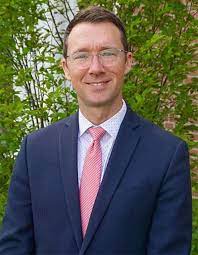Table of Contents
Jamie Williamson, Head of School for The Windward School in New York, talks about the impact COVID-19 has had on members of his school community, including students, families, faculty, staff and all other stakeholders. In addition to shifts forced by the pandemic, Williamson describes learning models at his school, and addresses the role of education in advancing social justice measures that can better understand and represent minority students more broadly.
To say the last few months were challenging to The Windward School, just like countless others nationwide, would be an understatement. Not only was there a health crisis to handle, but economic and educational consequences to consider.
“We have an educational crisis in this country right now that we probably don’t talk about enough. In March, when the entire economy shut down, and schools and businesses were forced to work from home, kids were instructed remotely across the country. But [at the time] nobody linked in school leadership to deliver a program in that way. I think we were forced, as a country, to take a look at how we can pivot and deliver an entirely different program,” says Williamson.
Virtual Learning Envorioment
As many schools struggled to transition, Windward found success in continuing their emphasis on direct teacher-student interaction, but this time in a virtual setting. As he adds, “We decided that one of the big priorities was putting teachers in front of kids. Many schools went with a lot more of an autonomous sort of asynchronous kind of platform. [But] for kids who suffer from language-based learning disabilities, the idea of asynchronous learning is really challenging on so many levels. Our kids benefit from direct instruction that’s multi-sensory and skill-focused and sequential in its process. I think, for us, the idea of putting teachers in front of kids on a Zoom platform was a critical step in that process.”
The Spirit of “Sticktoitiveness”
The Windward School serves students with dyslexia and language-based learning disabilities (LBLD), and Williamson and the faculty embody a different spirit of “sticktoitiveness” innate in trying to support young people who are not always best served by the traditional school system. Interestingly though, during these difficult times, many public school systems could now benefit from the practices and methodologies exhibited to LBLD students. Williamson explains, “I’ve had superintendents of public instruction say things like, ‘Well, you get to pick all your students.’ I say, ‘We actually pick the kids who fail in your district.’ We pick the kids who fail the admission assessment and are the neediest academically. We work hard to provide research-based intervention, good reading instruction, and solid pedagogy to implement some impact.”
“There’s an opportunity [for] all schools to come to the table to examine what good instruction for kids looks like,” he adds. “[There are] many progressive schools where kids have to construct their knowledge [while being] left to their own devices [with] a lot more independence along the way. For us, we believe that we want to create some structure to the learning profile. I don’t want to leave a lot to chance. So we bring in techniques that we know are research-proven. We teach skills directly. We don’t infer the skills.”
Accuracy and Fluency
In terms of reading comprehension, kids at The Windward School don’t just read; they figure it out. They learn how to ask questions, and come to the text looking for decoding, accuracy, and fluency. There’s an emphasis on practice and consistency that work to expand on skill sets.
“Our process is about creating ‘homogenous groups.’ We take academic skills, and we group like skills. We can target a smaller group and progress that group at the same time,” explains Williamson.
When it comes to social justice, there are many conversations in education about how to understand and better represent minority students. Education plays a pivotal role in driving lasting change that will have a significant impact on young people’s lives. Williamson and Windward play their part in addressing this critical topic while attempting to take as much of the politicization out of the equation. “I come back to pulling us out of politics and putting this in a human rights perspective,” he says. “It’s an idea of global empathy and the experience that other human beings have in this world. When I think about it from that perspective, it’s imperative that we, as schools, figure out what space we need to occupy. I think it’s one of education and representation.”
In a letter to the community reflecting on the protests and demonstrations, Williamson further addressed the issue and shared, “My hope beyond hope right now is that this is an opportunity for some good in our country. It’s an opportunity as educators and human beings, to come to the table and think about the kids in our system and what they bring to the table. How can we best open channels of dialogue and recognize that we all have some things to learn?”
Subscribe to edCircuit to stay up to date on all of our shows, podcasts, news, and thought leadership articles.

